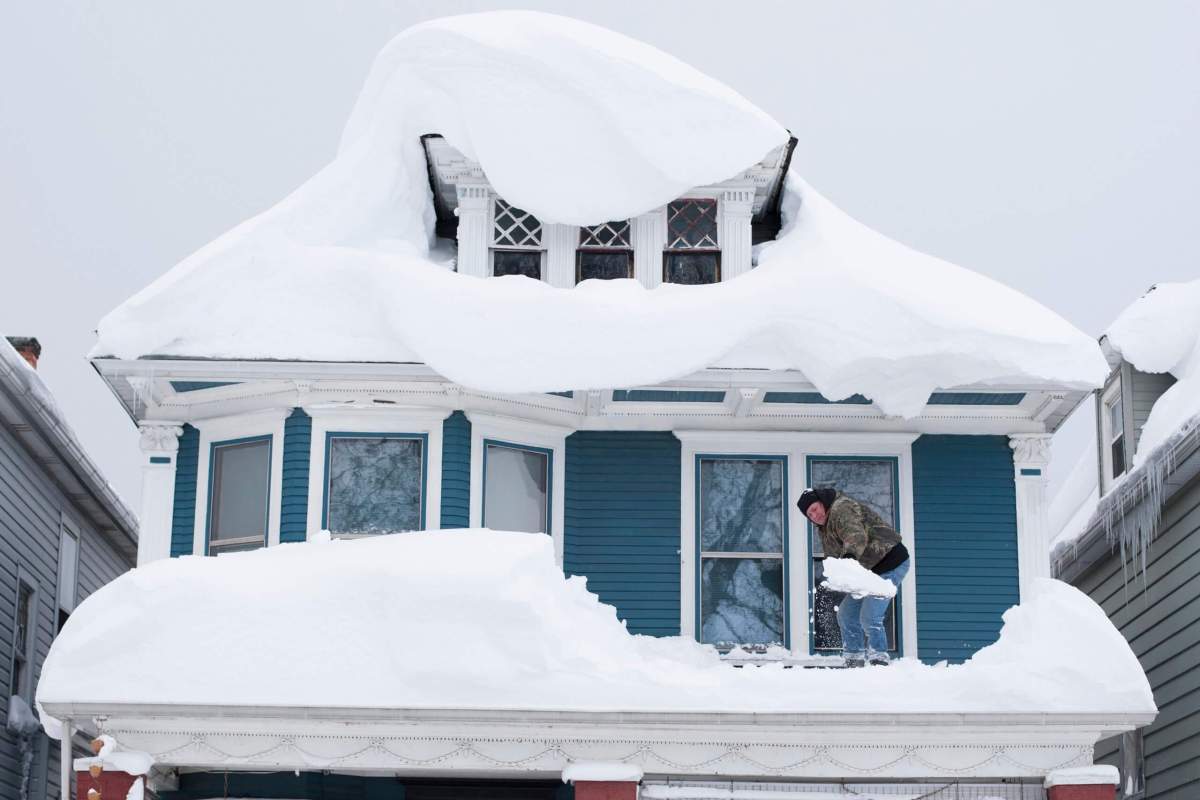Can snow collapse the roof of a Boston building? It’s a question of when, not if, says Mayor Marty Walsh.
The mayor implored Bostonians to hire contractors to remove snow from their roofs after more than seven feet crashed down on the city in the past three weeks.
Roofs have already collapsed in Stoughton, Newburyport, Upton and Quincy. NECN reports that 215 families were affected by a roof collapse at an apartment complex in Portsmouth, New Hampshire.
With snow and ice heaped onto snow and ice heaped onto more snow and ice, there’s been no opportunity for the snow on roofs to thaw, and that means conditions are ripe for roof collapses.
“The loads keep building up and the weather hasn’t warmed where the previous snow has melted,” said Jim Breitkreitz, a risk engineer with commercial insurance company Zurich Services Corporation. Breitkreitz said building owners should have an engineer evaluate of their roofs now to determine how much snow and ice it can handle and how much is currently on there.
The amount of snow a roof can handle varies wildly – it depends on the type, size and pitch of the roof, among other things.
Elevation changes in the roof can cause drifts, he said. Clogged drains are the genesis of many collapsed roofs, as snow and ice build up because there is no drainage.
Commercial building owners should look for deflection in the steel beams that hold the roofdeck up or sprinklerheads poking down a couple inches more than usual from a hanging ceiling. Any unusual creaking or groaning does not bode well, either, he said. Doors that don’t close anymore are also a solid indicator that “you might have a loading problem.” But don’t try to remove snow youirself.
“There are rather scientific ways to remove the snow from the roof,” he said.
He said he has seen roof collapses cost businesses hundreds of millions of dollars.
“You can lose close an entire building in a severe collapse,” he said. “And it’s not only the roof it’s what underneath. You have property damage, loss of sales, loss of production.”
Right now, the worst thing that could happen is warmer weather that only partially melts snow, followed by rain. Clogged drains would force the existing snow to soak up all the rain, making them extremely heavy. “That would be a very bad scenario,” he said.
Walsh: Snow poses roof collapse problem

Reuters.













